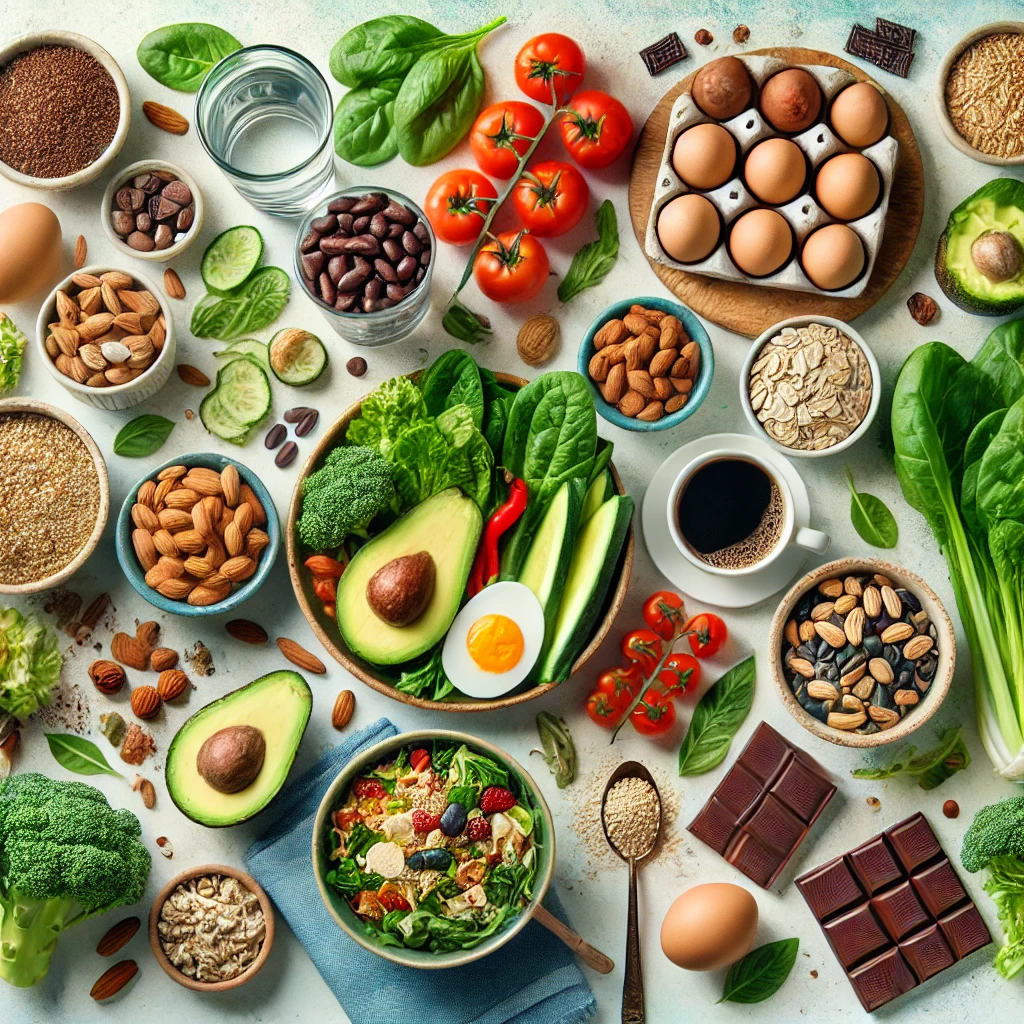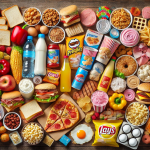Want to improve your health and well-being? The foods you eat play a crucial role in your mood, body weight, gut microbiome, and risk of chronic diseases like Type 2 diabetes, heart disease, and cancer. Research even suggests that eating the right foods could add years to your life.
Optimizing your nutrition doesn’t have to be complicated or restrictive. Here are five powerful nutrition tips, backed by science, to enhance your overall well-being.
1. Prioritize Protein and Fiber for Weight Loss
One of the largest clinical trials on diet and weight loss, the POUNDS Lost Trial, found that people who ate more protein and fiber had the most success in shedding pounds and improving their health.
- High-protein consumers lost three times more weight than those who ate less protein.
- People who consumed more fiber lost nearly double the weight of low-fiber eaters.
Protein keeps you full longer, reducing calorie intake, and is also thermogenic, meaning your body burns more calories digesting it. Fiber promotes appetite-suppressing hormones like GLP-1 and supports gut health by producing short-chain fatty acids.
Best Sources of Protein and Fiber
- Protein: Lean meats, seafood, eggs, dairy, beans, tofu, lentils, nuts.
- Fiber: Leafy greens, berries, citrus fruits, whole grains, beans, quinoa, oats.
Aim for 1 to 3 cups of beans, peas, or lentils per week for optimal benefits.
2. Avoid Ultra-Processed Foods
A major finding from the POUNDS Lost Trial was that people who consumed fewer ultra-processed foods lost significantly more weight. Another study from the National Institutes of Health found that ultra-processed foods lead to an additional 500 calories per day, resulting in quick weight gain.
What Are Ultra-Processed Foods?
These are packaged foods loaded with additives, preservatives, and high amounts of sodium, sugar, and unhealthy fats. Examples include:
- Sugary cereals, soft drinks, and potato chips
- Packaged cookies, frozen entrees, and processed meats
- Foods with synthetic flavors, emulsifiers, and artificial colors
How to Identify and Avoid Them
- Choose foods with fewer and simpler ingredients.
- Look for low sodium and no added sugar labels.
- Swap ultra-processed snacks for whole food alternatives like nuts, fruits, and homemade meals.
For more on the dangers of ultra-processed foods, check out this Harvard Health article.
3. Eat Omega-3s for Brain and Heart Health
Studies show that people who regularly eat seafood have a lower risk of heart disease and cognitive decline. Omega-3 fatty acids, found in fish, support brain and cardiovascular health better than supplements.
Best Sources of Omega-3s
- Fatty fish: Salmon, sardines, trout, cod, oysters.
- Plant-based: Chia seeds, flaxseeds, hemp seeds.
Aim for two 4-ounce servings of seafood per week or add chia and flaxseeds to your meals for a plant-based boost.
For more information on omega-3 benefits, visit American Heart Association. (DoFollow Link)
4. Drink Coffee and Eat Dark Chocolate to Reduce Diabetes Risk
Both coffee and dark chocolate are rich in polyphenols, which improve insulin function and protect against Type 2 diabetes.
Research Findings:
- 3-4 cups of coffee daily lowers diabetes risk by 25%.
- 5 ounces of dark chocolate per week reduces diabetes risk by 21%.
Choosing the Right Chocolate
- Opt for dark chocolate with at least 70% cocoa.
- Avoid milk and white chocolate, which contain more sugar and fewer polyphenols.
- Be mindful of heavy metals in some brands; check consumer reports for safer options.
5. Reduce Salt Intake to Protect Your Gut Microbiome
Excess sodium intake is linked to high blood pressure and reduced gut microbiome diversity, increasing risks of obesity and chronic diseases.
How to Cut Back on Sodium
- Read labels: Choose foods with 5% or less daily value of sodium.
- Limit ultra-processed foods, which are typically high in sodium.
- Eat more potassium-rich foods to counterbalance sodium’s effects.
- Best sources: Avocados, bananas, beans, squash, and leafy greens.
A meta-analysis in the Annals of Internal Medicine found that replacing regular salt with potassium-based salt substitutes significantly reduces heart disease risk.
Final Thoughts
Improving your health and well-being doesn’t require extreme dieting. By prioritizing protein, fiber, omega-3s, polyphenols, and reducing ultra-processed foods and salt, you can boost longevity and metabolic health.
Start making these changes today! For more nutrition tips, check out our healthy eating guide. (Internal Link)


